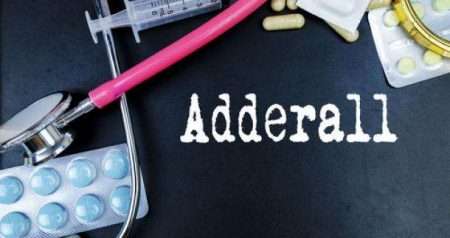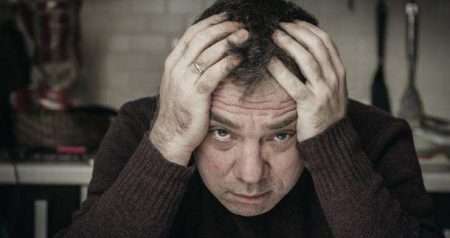What are the signs you need a medical detox programme? Those with alcohol addiction have a constant struggle of trying to quit, but quitting cold turkey can make you feel like you cannot live without it. You know that you need to cleanse your body from those harmful substances, but you do not know how you will be able to sustain your detox when going through it alone. There are several signs that you need to seek a medical detox programme before more damage is done to your body and mind. You don’t have to face this alone. Help is available, and recovery is possible. Understanding when to reach out for help with detox from alcohol or other substances is an important first step.
What Are the Signs You Need a Medical Detox?
Some withdrawal symptoms may seem mild at first, but can quickly worsen. Knowing when detox is really needed is incredibly important for your mental and physical health.
Common signs you may need a medical detox include:
- Shaking or tremors when not drinking
- Feeling anxious, irritable, or unable to sleep
- Heavy sweating, especially at night
- Nausea, vomiting, or loss of appetite
- Heart palpitations or rapid heartbeat
- A history of withdrawal seizures
- Hallucinations or confusion
If you are experiencing these symptoms or have a history of alcohol dependence, seeking a medical assessment is strongly advised.
Learn About Alcohol Detox and Withdrawal
Find out more about detoxing from alcohol and the withdrawal symptoms and risks of detoxing alone.
When Withdrawal Becomes Dangerous
In some cases, withdrawal can lead to a condition called Delirium Tremens (DTs). This is a medical emergency. Symptoms may include:
- Body tremors or uncontrollable shaking
- Intense confusion or disorientation
- Seeing or hearing things that aren’t there (hallucinations)
- High fever or severe agitation
- Seizures
These symptoms usually develop two to four days after the last drink, but can appear later. DTs are more common in people with a long history of alcohol dependence and poor physical health. Withdrawal symptoms often begin around eight hours after the last drink and may peak within 24–48 hours.1
Why Medical Detox May Be Necessary
Trying to detox without medical support can be dangerous. Professional detox provides:
- 24/7 monitoring from trained staff
- Medications to reduce withdrawal symptoms
- Support for dehydration, poor nutrition, or other complications
- A safe environment for beginning recovery
Medical detox isn’t just about managing your symptoms. It creates a stable foundation for long-term treatment and helps to reduce the risk of early relapse. If you notice any symptoms of shaking, sweating, confusion, or hallucinations developing, it is important to seek medical advice promptly.2

Inpatient vs. Outpatient Detox: Which Is Right for You?
Inpatient detox is typically recommended for people who have experienced severe withdrawal symptoms in the past, such as seizures or hallucinations. It is also appropriate for those who have additional physical or mental health conditions that could complicate the withdrawal process, or if the home environment is not considered safe or supportive for recovery.
On the other hand, outpatient detox may be suitable for individuals whose symptoms are assessed as mild to moderate. This option is more appropriate when the person is in good physical health and has a stable home environment with a strong support system in place to assist them during the process.
A healthcare provider will help you choose the right option during your assessment. In Ireland, services may include counselling, community-based support, or residential detox, depending on your needs.3
Treatment for Alcohol Addiction
Find out more about treatment for alcohol addiction at Smarmore Castle.
What to Expect from a Medical Detox Assessment
During your first assessment, medical staff will:
- Ask about your substance use history and health
- Take vital signs and perform basic tests
- Develop a personalised detox plan to keep you safe
Many people can begin detox within 24 hours of their assessment.
Detox Is Only the Beginning
Detox is the first stage of recovery, not the final goal. Ongoing treatment helps address:
- The emotional and psychological aspects of addiction
- Triggers, stress, and lifestyle habits
- Long-term strategies to avoid relapse
Follow-up care may include inpatient rehab, outpatient counselling, or continuing therapy.
Get In Touch To Learn About Your Treatment Options
Contact Smarmore Castle today to find out more abut the medical detox and treatment available.
Reaching Out for Help
If you’re noticing the signs that you may need medical detox, you’re not alone. Professional help is available. Speak to your GP or contact a specialist service like Smarmore Castle for a confidential consultation. Your GP can also connect you with local services and treatment options available in Ireland.4
Smarmore Castle offers medically managed detox followed by a comprehensive, evidence-based treatment programme. Support is available for you and your family every step of the way.
Self-Help Resources
If you would like to find free support in your local area, please consider Alcoholics Anonymous (AA). If you would like to talk to someone about your mental health, get in touch with the Samaritans.
It is important to reach out to your GP for help and advice f you are struggling with addiciton or if you have any immediate concerns. If you would like to find out more about treatment for alcohol addiction, get in touch with a member of our team.

Ready To Take the First Step?
-
References
- Citizens Information. Help for drug and alcohol addiction [Internet]. Dublin: Citizens Information; 2024 [Accessed August 2025].
- Health Service Executive. Alcohol withdrawal symptoms [Internet]. Dublin: HSE; 2024 [Accessed August 2025].
- Stewart S, Swain S. Assessment and management of alcohol dependence and withdrawal in the acute hospital: concise guidance. Clinical Medicine. 2012;12(3):266-271. doi: 10.7861/clinmedicine.12-3-266.
- Health Service Executive. Alcohol and drug treatment services types [Internet]. Dublin: HSE; 2024 [Accessed August 2025].


